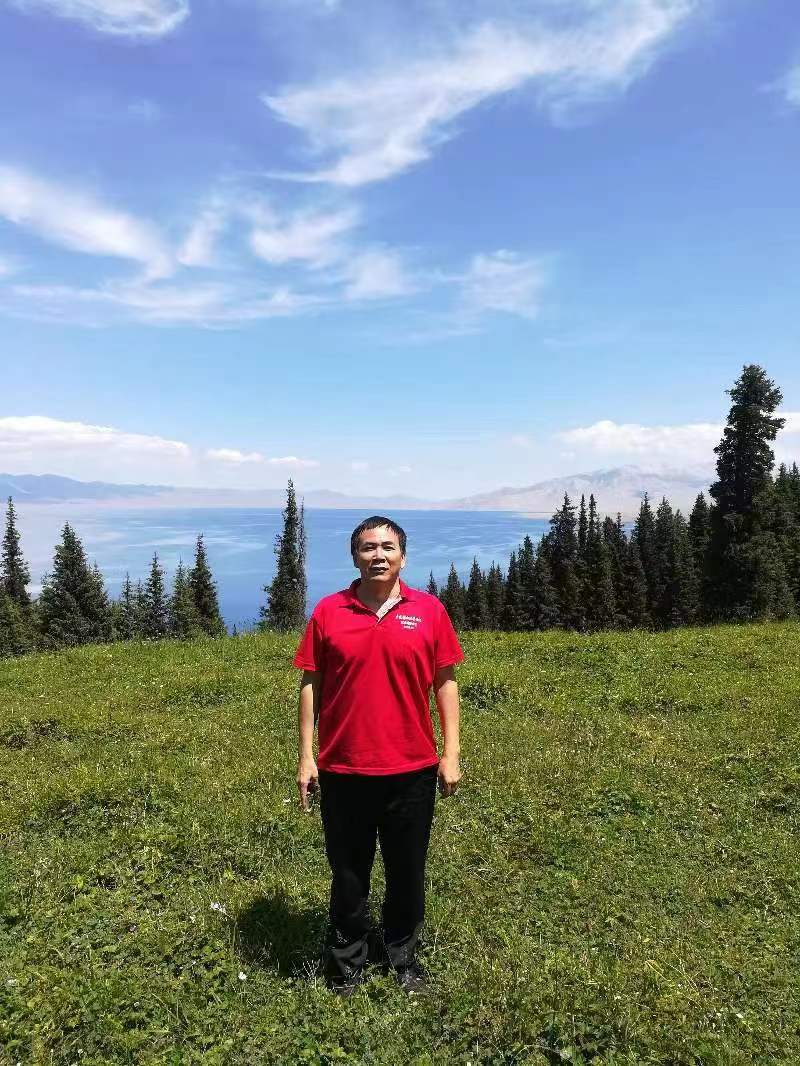【Basic information】
Name:Mingran TAN
Gender:Male
Administrative Position:none
Academic Title:Professor
Education:PhD
Office:504
Email:mingrantan@hotmail.com
Areas of Research:Pre-Qin Philosophy, Neo-Confucianism
Academic Organization Memberships:Chinese Confucian Academy; Chinese Laotzu Academy
【Bio】
【Education】
PhD(2010), University of Toronto, Department of East Asian Studies, Toronto
PhD (2003), Peking University, Department of Philosophy & Religion, Beijing
MA (1996), Chinese Academy of Social Sciences Graduate School, Beijing
BA (1991), Peking University, Department of Philosophy & Religion, Beijing
【Work Experience】
2022-, Professor, College of Philosophy, Nankai University. Tianjin, China
2012-2021, Associate researcher, and Professor, School of Philosophy and Social Development, Shandong University, Jinan, China
2009-2010, Course Instructor, University of Toronto
1996-2000, Editor, Institute of Chinese Culture, Chinese Academy of Arts, Beijing, China
【Teaching】
Courses: History of Chinese Philosophy
The Wisdom in the Laozi and the Zhuangzi
The Management Wisdom of the Legal School
Neo-Confucianism
World Sinology
Global Ethics and Dialogue between Civilizations
【Selected Publications】
Monographs
Wang Fuzhi’s Reconstruction of Confucianism, Palgrave McMillan,2021
A Research on Wang Fuzhi’s Discourse on the Zhuangzi王夫之的庄学研究, Jinan: Shandong people's Press, 2017
The Common Origin of Confucianism and Daoism儒道同源,Jinan: Shandong People's Press, 2019
Articles
Wang Fuzhi’s Criticism of Buddhism and Its Limitations, Dao: A Journal of Comparative Philosophy, 2018 September, Vol.17, No. 3
Wang Fuzhi’s Evaluation of the Zhuangzi, in Dao Companions to Chinese Philosophy 16: Dao Companion to the Philosophy of the Zhuangzi, ed. Chong, Kim Chong, London: Springer 2022
A Neo-Confucian Criticism of Daoism: Wang Fuzhi’s Contradictory Remarks on the Laozi,Frontiers of Philosophy in China, 2020, Volume 15, Issue 1
The Limit of Confucian Moral Cultivation and Its Solution in the Transition of China from Agricultural to Commercial Society, Frontiers of Philosophy in China, 2016, Volume 11, No.1
Wang Fuzhi’s Interpretation of Spirit/shen in His Annotation on the Zhuangzi”, Frontiers of Philosophy in China, 2015, Volume 10, No. 2
A Re-evaluation of Xunzi’s Moral Theory from the Aspect of Mind, Journal of Chinese Philosophy, March, 2008, Vol. 35, Issue 1
Emptiness, Being and Nonbeing: How did Seng Zhao re-interpret the thought of Laozi and Zhuangzi in a Buddhist Context, Dao: A Journal of Comparative Philosophy, June, 2008, vol.7, no.2
An Investigation and Assessment Yi T’oegye’s Li-qi Dualism, Korean Journal, 2006 summer, Vol.46, No.2
What is Desirable is Called Goodness Revisited, Studies of Zhouyi, 2020, No.3 再论“可欲之谓善”,《周易研究》2020年第三期
The Universality and Religiosity of Filial Piety, Journal of Literature, History and Philosophy, 2017, No.2 , pp 116-122, 孝的普适性与宗教性,《文史哲》2017年第二期
Translations
Edited Volumes
Other Writings
【Research Grants】
【Honors and Awards】
2017, 2nd Class Award, Shandong Provincial Excellent Works in Social Sciences
2010, Chiang Ching-kuo Foundation Doctoral Dissertation Fellowship (North America)
2008, Doctoral Thesis Completion Grant, University of Toronto
2006, Julia Ching Foundation Scholarship, University of Toronto
2004, Travel Grant, University of Toronto
2002-2003, Korean Foundation Scholarship, Peking University
2002-2003, Himalayas Foundation Scholarship, Peking University
2001-2002, Excellent Student Scholarship, Peking University
2001-2002, 2002-2003, Luo-Wen-Qi Taoist Scholarship, Peking University




